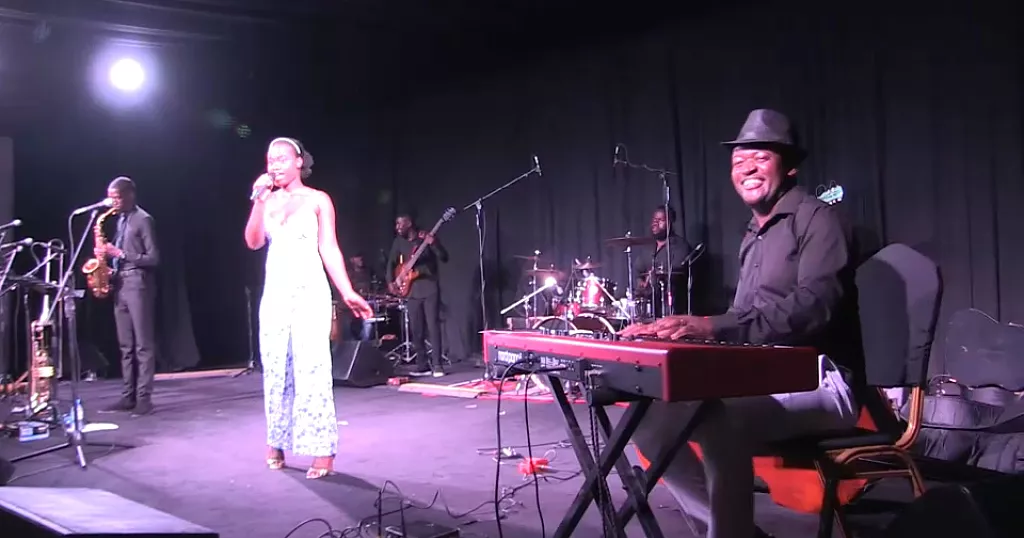For four vibrant days, the capital of Angola, Luanda, resonated with the sounds of jazz during the third edition of the International Jazz Festival, known as ANGOJAZZ. This year’s event brought together six countries—Germany, Belgium, France, Portugal, Cuba, and Venezuela—showcasing a diverse array of talent and cultural exchange.
Held at the historic Palacio de Ferro, the festival transformed the venue into both a performance space and an educational hub. The festival’s artistic director emphasized the importance of passing knowledge to future generations, stating, “We must share information so they can benefit from what we are doing today. Music exists to be documented.” Alongside the performances, the festival offered free workshops and masterclasses, allowing attendees to learn directly from accomplished musicians.
The focus on training female Angolan artists was a notable highlight of this edition. By providing educational opportunities, the festival aimed to empower women in the music industry and encourage their participation in a traditionally male-dominated field.
The burgeoning jazz scene in Angola was palpable at ANGOJAZZ, with the participation of first-time attendees serving as a positive indication of growth for organizers. One enthusiastic attendee remarked, “Jazz is truly a genre that soothes the soul. After a long day, coming here to listen to this music is a delight; the singers are phenomenal.” This sentiment reflected the festival’s ability to bring together communities through the universal language of music.
Among the 60 artists who performed were renowned musicians and groups from the invited countries. The lineup included Gonçalo Marques and Bruno Santo from Portugal, Miguelito from Cuba, Conny Schneider from Germany, Trio Edith Calas from France, Biyewa from Belgium, and Mariana Martinez from Venezuela. They were joined by talented Angolan artists such as Dimbu Makiese, Filipe Mukenga, and Vladimiro Gonga, all of whom contributed to the festival’s dynamic atmosphere.
Miguelito, a Cuban violinist, expressed his passion for performance, saying, “Music is in my veins, and I strive to give my best on stage.” His enthusiasm resonated with fellow artists and attendees alike, highlighting the festival’s role in fostering artistic expression and collaboration.
This edition of ANGOJAZZ also honored local music critic and jazz expert Jeronimo Belo, recognizing his contributions to the genre and the music community in Angola. The tribute underscored the festival’s commitment to celebrating both local and international talent, bridging cultural gaps through shared musical experiences.
The event concluded on a high note, with organizers expressing satisfaction with the turnout and overall experience. Supported by the Ministry of Culture, the French Embassy, and the Alliance Française, ANGOJAZZ successfully brought together a mix of established artists and emerging talent, further enriching Angola’s cultural landscape.
As the festival wrapped up, many attendees voiced their eagerness to return next year. The blend of education, performance, and community spirit established ANGOJAZZ not just as a music festival, but as a vital part of Angola’s cultural identity.
Looking ahead, the organizers are optimistic about the future of jazz in Angola and the continued growth of ANGOJAZZ. With plans to expand the educational components and further engage local artists, the festival aims to solidify its place as a cornerstone of the African jazz scene.
In summary, the third edition of the International Jazz Festival in Angola showcased not only incredible musical talent but also a commitment to education and empowerment within the arts. By fostering a rich environment for collaboration and learning, ANGOJAZZ is poised to play a pivotal role in the evolution of the jazz genre in Angola and beyond









